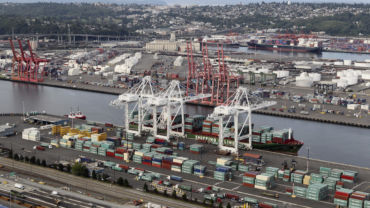Climate-related issues are becoming an important part of US supply chains as more companies are using contract clauses to hold their vendors & suppliers to stricter standards
Environmental, social, and governance (ESG) matters, including climate-related obligations, have become an increasingly important issue in supply chain relationships. In many cases, the charge has been led by large companies with significant negotiating leverage.
The traditional way for large companies (including retailers) to ensure their vendors are following desired ESG requirements is by implementing a supplier code of conduct (sometimes called a vendor code of conduct). These codes typically set out the minimum requirements regarding fair and safe labor and environmental practices, among other concerns, that manufacturers, suppliers, and other vendors must meet in order to sell goods to or otherwise do business with the company.
The codes typically sit on company websites and are sometimes incorporated by reference into the contracts in which they enter into purchase goods and services. Non-compliance may subject a vendor to penalties, including loss of the chance to do business with that company. While the codes can showcase a company’s commitment to ESG, it is not known for certain how effective they are in fostering ESG values throughout the supply chain.
Beyond supplier codes of conduct
ESG-related requirements can also be directly embedded in supply chain contracts. This can be seen in the increasing use of representations and covenants in supply contracts to supplement the contract’s compliance with law provisions. A breach of the representation or covenant is a breach of the contract itself that subjects the breaching party to contractual liability in addition to whatever public or private remedies are provided by law.
Examples of ESG-related provisions include:
-
-
- Conflict minerals clauses — These include provisions that require the seller of goods to represent that the goods do not contain conflict minerals, the presence of which could trigger reporting obligations under the conflict minerals rules promulgated under the Dodd-Frank Act well as Office of Foreign Assets Control sanctions, under Executive Order 13671. The rules aim to reduce a significant source of funding (trading of conflict minerals) for armed groups that are committing human rights abuses and contributing to conflict in high-risk areas, such as the Democratic Republic of the Congo.
- Forced labor clauses — These include covenants used by US importers of goods to prohibit their foreign manufacturers or suppliers from using any form of forced labor in the production of the imported goods, including in their own supply chains. These clauses help to ensure compliance with Section 307 of the Tariff Act of 1930 (19 U.S.C. 1307), which prohibits importing goods into the US that are made with forced labor, including convict labor and forced or indentured child labor.
-
Climate-conscious clauses
Detailed climate-conscious clauses in purchase contracts, such as clauses requiring a supplier to reduce their greenhouse gas (GHG) emissions, are still not commonplace, but this may be changing. Paving the way is the increasing standardization of the terminology used in these contracts, especially regarding GHG emissions.
For example, it is widely accepted practice to group a company’s emissions for reporting purposes according to the three categories defined by the Greenhouse Gas Protocol, a corporate accounting and reporting standard that helps companies and other organizations to identify, calculate, and report their GHG emissions. These three categories include a company’s self-generated emissions (Scope 1); indirect emissions from the company’s purchased energy (Scope 2); and all other emissions that a company is indirectly responsible for across its value chain, such as emissions from the manufacture of purchased goods or emissions from the customer acquiring the goods (Scope 3). Clearly, Scope 3 is the most expansive and difficult to measure.
Another driver for the increased use of climate-conscious clauses in supply chain contracts may be the proposed climate risk disclosure rules for public companies issued by the Securities and Exchange Commission (SEC). These proposed rules also could impact privately held companies that are not directly subject to the SEC’s proposed rules but are part of public company supply chains. For example, public companies may have the incentive to use their negotiating leverage to impose climate-related obligations on their smaller partners in order to help public companies fulfill their SEC disclosure obligations and inform their investors.
The Chancery Lane Project
Further help in navigating climate-conscious contract clauses, however, may be on the way. For example, UK-based The Chancery Lane Project has worked in collaboration with lawyers and sustainability professionals across multiple disciplines and jurisdictions to create a suite of open-access contract clauses (more than 100 so far) that can be adapted to drive climate action and align contractual drafting for the transition to net zero.
The clauses can be used, for example, to incentivize reductions in Scope 3 emissions and promote positive sustainability behaviors. The clauses are based on the law of England and Wales, but the organization has begun work to adapt them for use in other jurisdictions, including the US.







